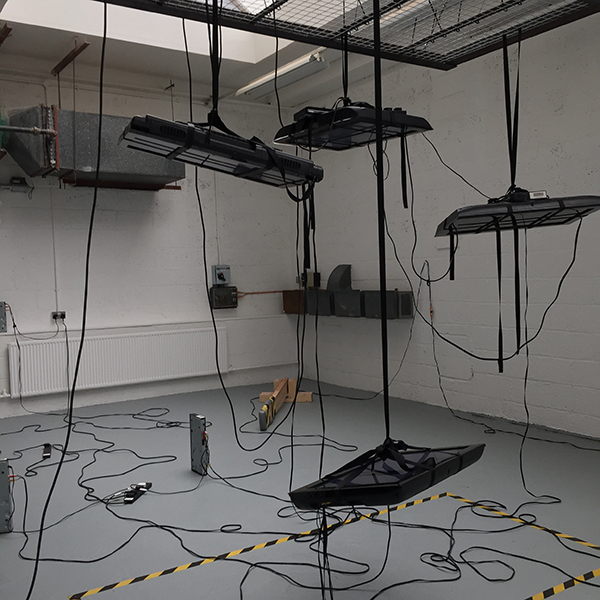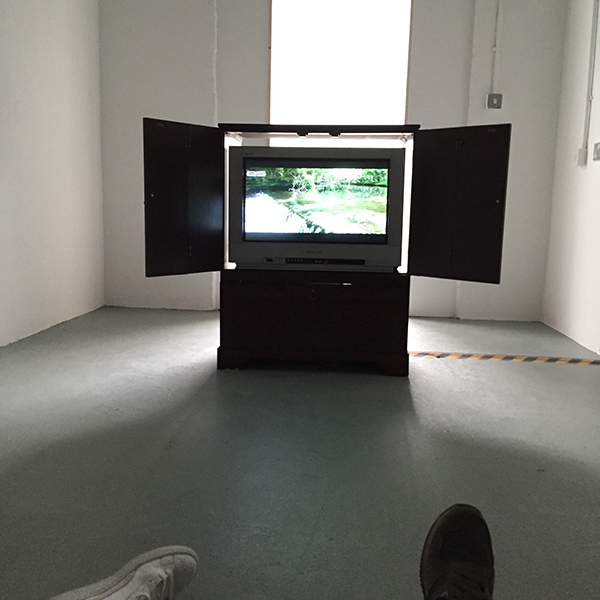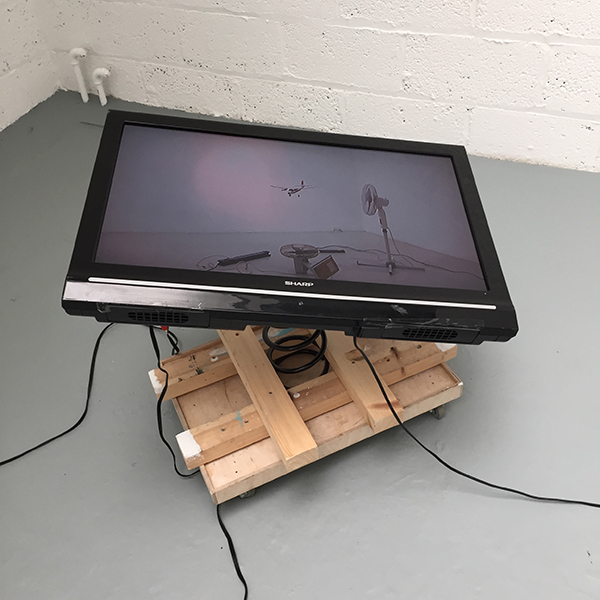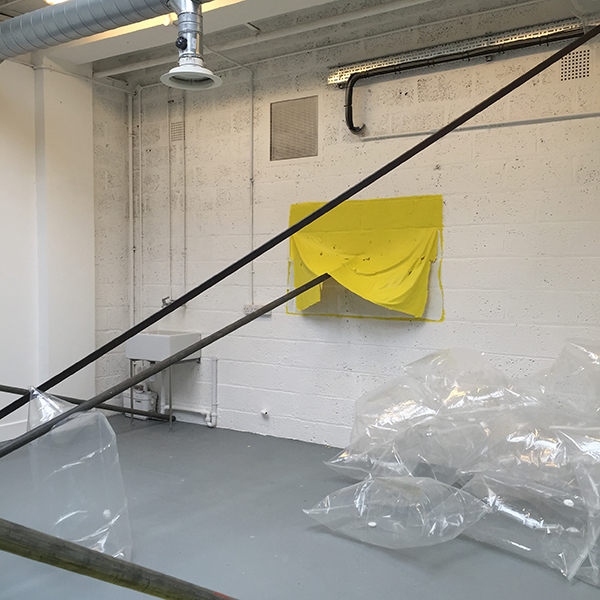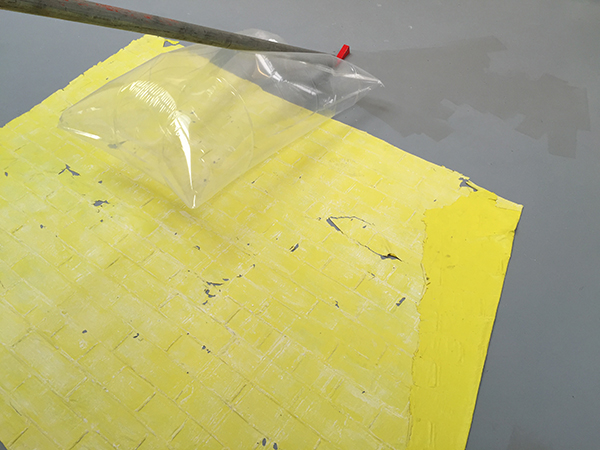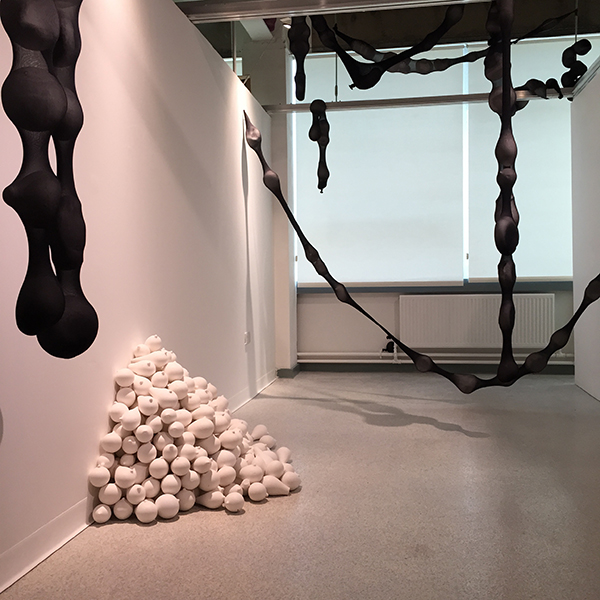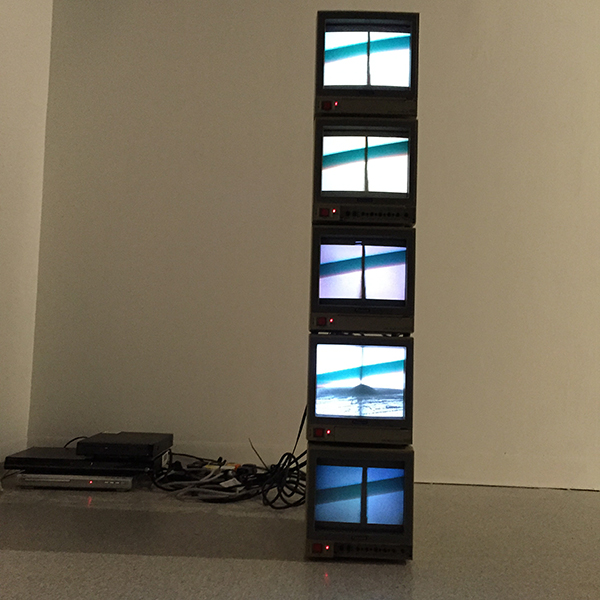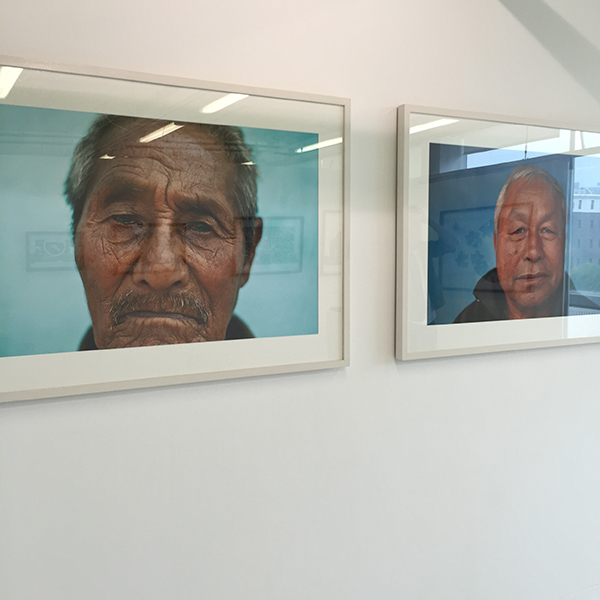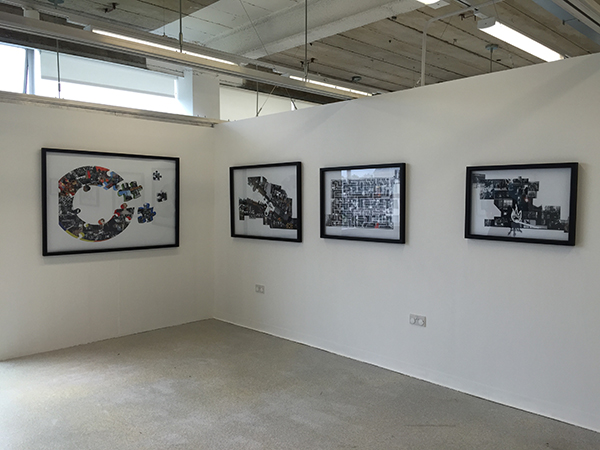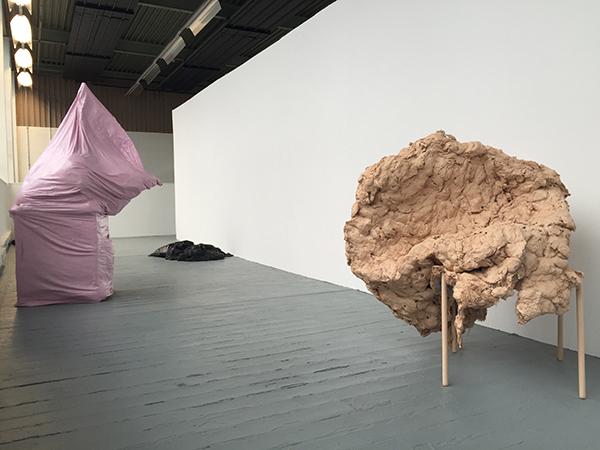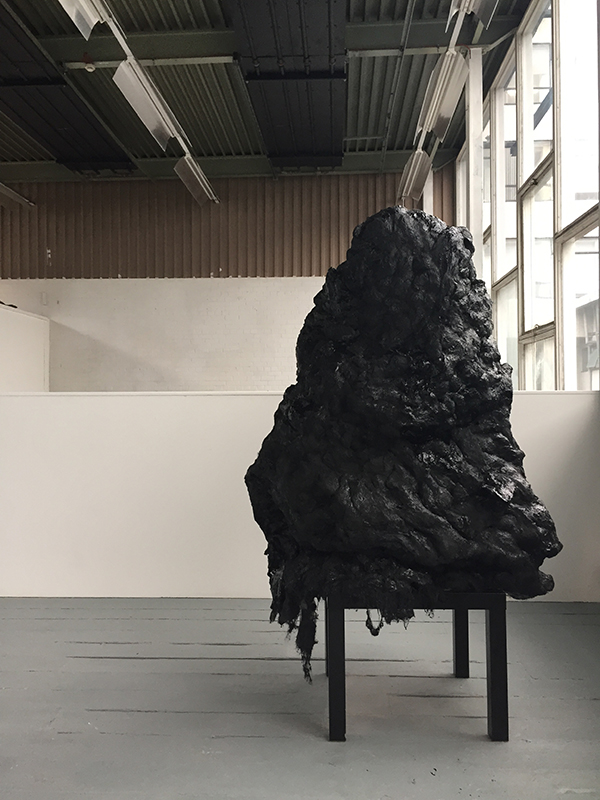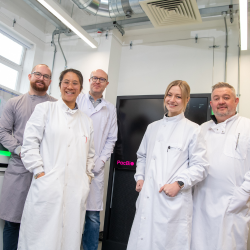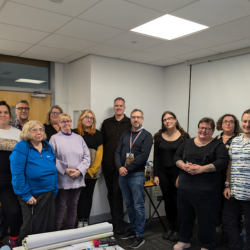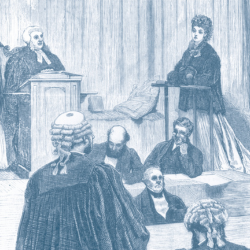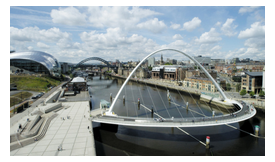-
Study
-
Undergraduate
- Search for a Course
- Undergraduate Open Day & Events
- Application Guides
- Northumbria University UCAS Exhibitions
- Foundation Years
- Undergraduate Fees & Funding
- School & College Outreach
- Continuing Professional Development
-
Postgraduate
- Postgraduate Study Degree
- Postgraduate Research Degrees
- Postgraduate Open Days and Events
- Postgraduate Fees & Funding
- Flexible Learning
- Thinking about a Masters?
- Continuing Professional Development
- Change Direction
-
Student Life
- The Hub - Student Blog
- Accommodation
- Life in Newcastle
- Support for Students
- Careers
- Information for Parents
- Students' Union
- Northumbria Sport
- Be Part of It
-
-
International
International
Northumbria’s global footprint touches every continent across the world, through our global partnerships across 17 institutions in 10 countries, to our 277,000 strong alumni community and 150 recruitment partners – we prepare our students for the challenges of tomorrow. Discover more about how to join Northumbria’s global family or our partnerships.
View our Global Footprint-
Applying to Northumbria
- European Union
- Our London Campus
- Northumbria Pathway
- International Events
- Entry Requirements and Country Representatives
- Regional Offices
-
Northumbria Language Centre
- Faculty Requirements
- Acceptable English Requirements
- Pre-sessional English Language and Study Skills
- Academic Language Skills Programmes (ALS)
-
International Fees, Funding & Scholarships
- International Undergraduate Fees
- International Undergraduate Funding
- International Masters Fees
- International Masters Funding
- International Postgraduate Research Fees
- International Postgraduate Research Funding
- International Money Matters
-
Life at Northumbria
- International student support
- Careers
-
International Mobility
- Current Northumbria Students
- Incoming Exchange Students
-
-
Business
Business
The world is changing faster than ever before. The future is there to be won by organisations who find ways to turn today's possibilities into tomorrows competitive edge. In a connected world, collaboration can be the key to success.
More on our Business Services -
Research
Research
Northumbria is a research-rich, business-focused, professional university with a global reputation for academic quality. We conduct ground-breaking research that is responsive to the science & technology, health & well being, economic and social and arts & cultural needs for the communities
Discover more about our Research -
About Us
-
About Northumbria
- Our Strategy
- Our Staff
- Place and Partnerships
- Student Profiles
- Alumni Profiles
- Leadership & Governance
- Academic Departments
- University Services
- History of Northumbria
- Contact us
- Online Shop
-
-
Alumni
Alumni
Northumbria University is renowned for the calibre of its business-ready graduates. Our alumni network has over 244,000 graduates based in 178 countries worldwide in a range of sectors, our alumni are making a real impact on the world.
Our Alumni - Work For Us
What will I learn on this module?
In this module the syllabus will focus on the development of individual research strategies, together with a deepening understanding of your practice and the context in which it lives. You will learn to develop an increasingly self-directed line of enquiry that is underpinned by evaluative, critical and creative research methods. The module is therefore focused on developing your independence as a creative practitioner, through the consolidation of your visual and intellectual skills, and acts as a preparation for the presentation of your Degree Show exhibition at the end of the year. A sense of a practice-led, studio-centred enquiry is fundamental to the module’s overarching philosophy and content.
To this end, the module is designed to help you shape and synthesise your own ‘artistic attitude’ and to help you extend your understanding of conceptual and practical ‘attitudes’ to research and production. A fine art practice can take many forms and you will be supported in developing diverse, challenging and ambitious approaches to your artistic concerns. As the semester unfolds you will take increasing responsibility for your learning. This will include:
• Identifying and interrogating appropriate theories and contexts
• Testing material and technical decisions
• A growing understanding of your ‘audience’ and how others may ‘read’ your work
• Acknowledging how risk taking and open-ended approaches to making and thinking support progress
How will I learn on this module?
As a fine art student, your principle method of learning is through practice, which becomes more independently defined as the year progresses. At level six this is achieved through processes of critical thinking, creative research, experimentation, and open ended, challenging approaches to working. It is with an active engagement with these processes that you will progress your creative and conceptual skills and ‘take ownership’ of your practice. The primary site of your learning will usually be the studio and workshop environment. Your learning will be informed by different approaches to self-initiated and directed research, including material production, the critical analysis of a text, image, exhibition or film etc., or reflecting and acting on discussions with staff and peers. Initial taught sessions will encourage you to critically re-evaluate your practical and theoretical concerns from level five in order to begin to set meaningful priorities for this next stage of study.
Teaching at this level encourages you to steer the content and direction of your practice with greater autonomy, as over the year production and concept become more defined and professional. You should be prepared to identify questions and issues that can inform the one to one or group conversation, to be curious about practices other than your own and how they might contribute to, or challenge, your own way of thinking and making. These are important factors in synthesising your ‘artistic attitude’ and having confidence in it. The module offers a diversity of approaches to learning and teaching including individual tutorials, group critiques, technical workshops, lectures and seminars and student led presentations. Learning crucially occurs through a range of other forms that you take ownership of. This includes following recommended reading and initiating independent practice and creative research, being present for informal studio conversations with peers and staff, taking time for self-reflective evaluation and acting on formative feedback, keeping up-to-date with BLACKBOARD ULTRA, our electronic learning portal, being responsible for planning your studio production, attending guidance sessions and meetings, and independently embedding yourself in external artworld contexts through talks, events and gallery visits. Tutorials, group critiques and a self-evaluation review will furnish you with formative feedback to enable you to ‘feed forward’ and realise further ambitious outcomes in semester two.
At level six, Teaching Enhanced Learning (TEL) will continue to act as a core learning platform to support your subject knowledge, learning and creative practice via your module site on BlackBoard Ultra.
How will I be supported academically on this module?
Academic support is provided through scheduled contact with your designated Studio Tutor. Work is discussed with academics in one to one tutorials seminars and group critiques. These formal conversations are opportunities to receive immediate formative feedback on on-going work and to act on that feedback. You write up a self-evaluative review on your progress at the semester mid-point which represents a constructive learning tool and is intrinsic to monitoring your academic development. You are supported academically by having your own studio space to produce work in and your regular attendance will also enable you to speak to tutors on a more informal basis about work you are developing. The Artistic Attitudes seminar programme addresses various approaches to research and practice and the sessions are designed to progressively support your critical understanding of what constitutes a professional and independent contemporary art practice. Formative feedback therefore occurs continually across the range of teaching contexts.
Further formal academic support is provided via information posted on the BlackBoard, the notice boards, e-mail and academic consultation and feedback office hours. The summative assessment point will provide timely feedback and guidance on the strengths of your developing practice and areas that can be improved upon. The Library is open 24 hours a day and the Electronic Learning Portal houses all your module documents including your timetable.
Where appropriate, students may also be directed to engage with Study Skills+, or other resources offered through the University Student Support Services such as Dyslexia Support. Personal Guidance tutorials also provide opportunities for students to discuss, in confidence, their academic progress on the programme Additional support is fostered through the Student Rep. system and the Ask4Help in Student Central can offer advice on academic procedural matters.
What will I be expected to read on this module?
All modules at Northumbria include a range of reading materials that students are expected to engage with. Online reading lists (provided after enrolment) give you access to your reading material for your modules. The Library works in partnership with your module tutors to ensure you have access to the material that you need.
What will I be expected to achieve?
Knowledge & Understanding:
1 Demonstrate a critical understanding of the core theories and contexts that inform your artistic position.
2 Test, extend and evaluate your theoretical and practical knowledge through a range of practical outputs.
Intellectual / Professional skills & abilities:
3 Critically reflect on the conceptual and material connections of your practice in a draft artist statement.
4 Apply critical judgement, analysis and an advanced level of technical competency in the selection and application of appropriate materials and processes.
5. Plan and implement a self-directed creative project, including setting priorities, time management and attendance.
Personal Values Attributes (Global / Cultural awareness, Ethics, Curiosity) (PVA):
5
How will I be assessed?
Summative Assessment
(MLOs 1,2,3,4,5)
Semester 1
You will present a considered body of work in progress for this summative assessment at the end of semester one. All supporting coursework from semester 1, including contextual research/documentation, reading list and a draft artist statement will also be presented. This ‘Progress Review’ is a crucial point in your progression through the year. It enables you to reflect on your achievements so far and to respond to feedback, whilst also encouraging you to continue to test your ideas and to take risks before the final summative assessment point in semester two.
(EMA) Written feedback will be provided via the module BlackBoard site within 20 working days of submission. All feedback will be provided in the context of the module learning outcomes and module assessment criteria and will advise you on the strengths of your evolving practice as well as identifying areas for further development.
Pre-requisite(s)
N/A
Co-requisite(s)
AH6008
Module abstract
Full details are contained in the other sections of the module specification
This module builds on your creative and intellectual learning at level five and acts as a preparation for your final major project and the formal presentation of work in semester two. This first, level six, studio module will support you in the negotiation of an individual pathway for your developing practice, which may incorporate single or multiple material processes and media. The emphasis of your learning at this stage will focus on deepening your theoretical understanding and increasing your technical and critical skills. Research-rich learning delivered through tutorials, seminars, lectures and external activities and experienced through independent practice, support these processes.
The mid-point, self-evaluation review and summative assessment act as progress reviews and are significant ‘feed forward’ opportunities to reflect on your achievements and to support the realisation of your creative ambitions in semester two. Critical Contexts, together with the follow-on studio module, Synthesis support the development of a range of professional, transferrable skills, including working independently, problem solving, time management and identifying priorities that are key skills which can be applied to a range of career pathways.
Course info
UCAS Code W100
Credits 40
Level of Study Undergraduate
Mode of Study 3 years Full Time or 4 years with a placement (sandwich)/study abroad
Department Arts
Location City Campus, Northumbria University
City Newcastle
All information is accurate at the time of sharing.
Full time Courses are primarily delivered via on-campus face to face learning but could include elements of online learning. Most courses run as planned and as promoted on our website and via our marketing materials, but if there are any substantial changes (as determined by the Competition and Markets Authority) to a course or there is the potential that course may be withdrawn, we will notify all affected applicants as soon as possible with advice and guidance regarding their options. It is also important to be aware that optional modules listed on course pages may be subject to change depending on uptake numbers each year.
Contact time is subject to increase or decrease in line with possible restrictions imposed by the government or the University in the interest of maintaining the health and safety and wellbeing of students, staff, and visitors if this is deemed necessary in future.
Useful Links
Find out about our distinctive approach at
www.northumbria.ac.uk/exp
Admissions Terms and Conditions
northumbria.ac.uk/terms
Fees and Funding
northumbria.ac.uk/fees
Admissions Policy
northumbria.ac.uk/adpolicy
Admissions Complaints Policy
northumbria.ac.uk/complaints


